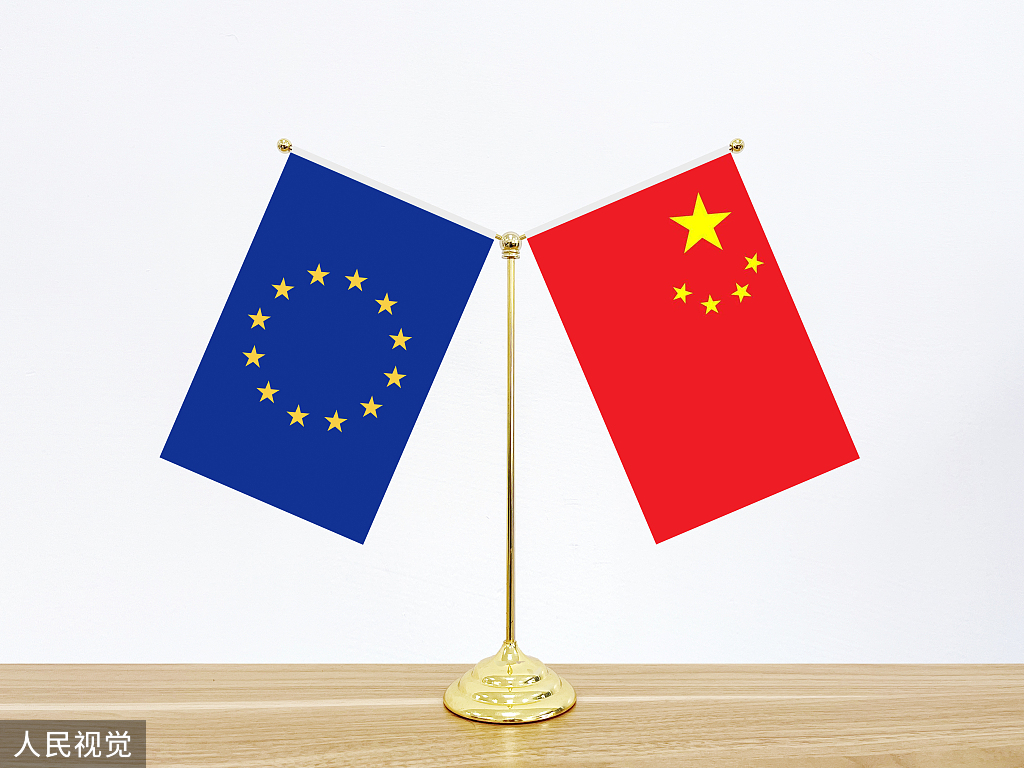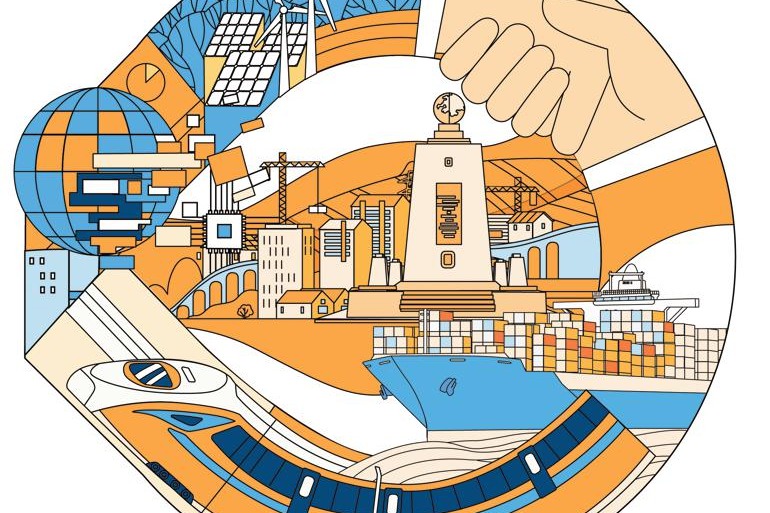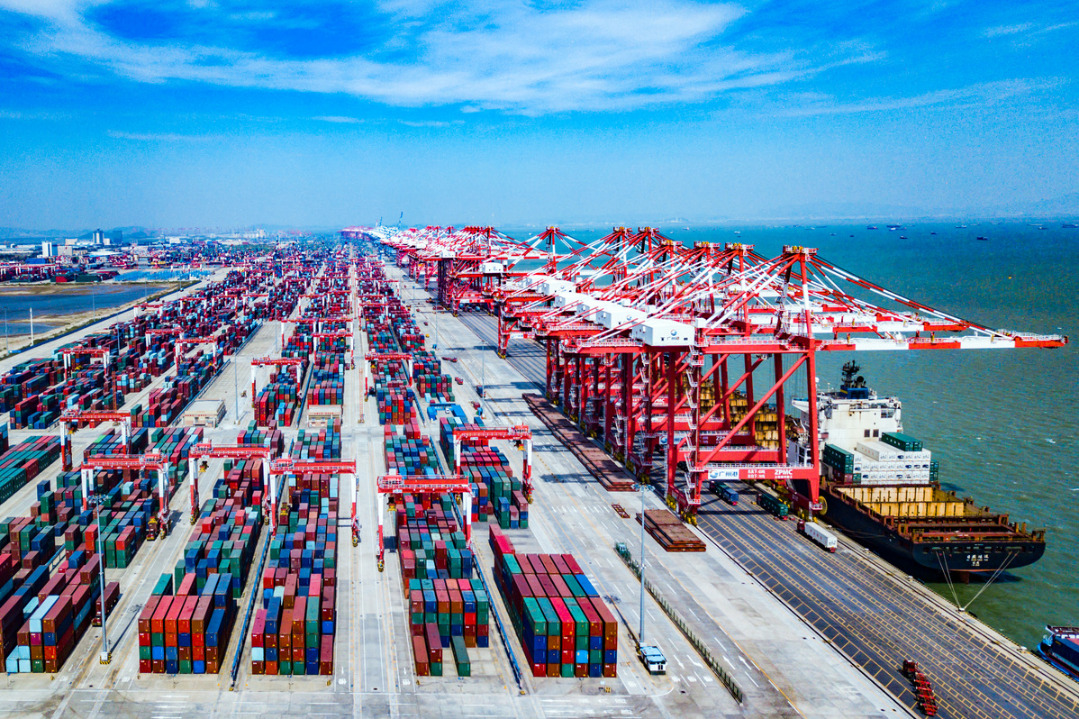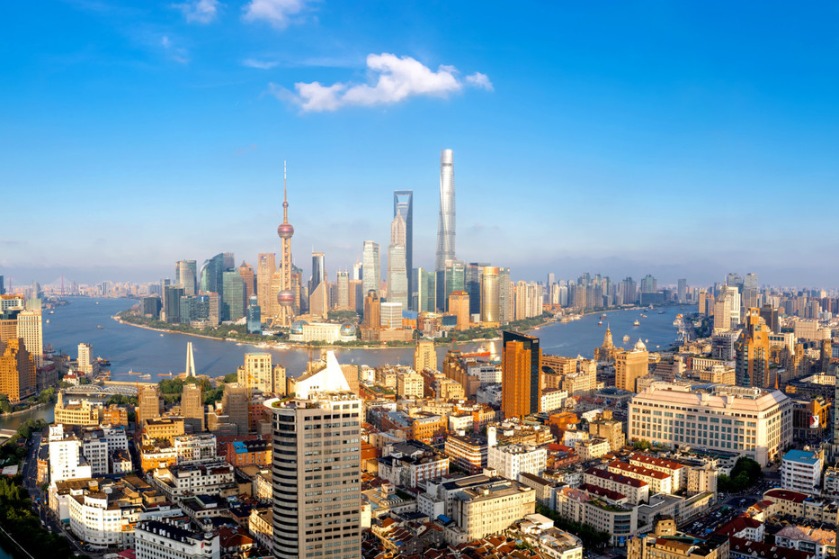What's next for China's relationship with EU?


The recent visits of German Chancellor Olaf Scholz and European Council President Charles Michel to China highlight the importance of China-European Union relations. The importance of Sino-EU relations was also underscored by a rare event the influential Brussels-based Friends of Europe held on Dec 1, the day of Michel's visit to Beijing.
The Friends of Europe's event, the "Europe-China Forum — tackling increasing global challenges: prioritizing constructive cooperation", was attended among others by officials of China's Mission to the EU, the European External Action Service, the European Commission, the European Parliament and the Organisation for Economic Co-operation and Development.
Although the EU is likely to focus more on transatlantic relations, the coming year will also witness the narrowing of the diplomatic gap between the EU and China, and the establishment of a more diversified and multipolar EU foreign policy based on realities. According to European Parliament Secretary General Klaus Welle, along with China, the EU will also focus on Brazil, India and the rest of Asia-Pacific in its foreign policy, because it is important to develop a world that is safe, enriching and enabling, in order to cope with the global challenges.
Everyone in Europe agrees that decoupling from China is impossible for a number of reasons. It is the world's second-largest economy in nominal GDP terms and the largest in terms of purchasing power parity. This is in contrast with the United States administration's outlook, whose official policy, as confirmed by the recent meeting of the US-EU Trade and Technology Council, appears to be to continue pursuing the hard-line approach.
But, as the head of the China unit at the OECD, Karim Dahou, said, it is necessary to engage with China to establish the global economic order so as to tackle the most urgent global problem: climate change.
China's economic growth, despite the impacts of the COVID-19 pandemic, is incredible. For example, in 2021, China's GDP reached $18 trillion. China is also the main trading partner of almost 130 countries, and its economy is about 80 percent that of the US.
There is massive footprint of China on almost every industry and economic sector of the EU, with a number of them being highly interdependent based on intra-industry trade. Also, China supplies almost 100 percent of the solar panels imported by the EU, and accounts for about 50 percent of all new ships built globally. To top it all, China is well integrated into the global value chains.
According to German Ambassador to China Patricia Flor, China remains an important business partner of Germany, and there is a need to build an open, fair and transparent global economy based on World Trade Organization rules.
And since China is both a partner and a competitor, the EU needs to pursue cooperation through competition, especially given China's efforts to become self-reliant in technologies. As for major areas of cooperation, they could be e-commerce, and green and digital technologies, with the EU making efforts to build a level playing field in reciprocity, market access and equal treatment. The EU also needs to diversify and further develop its economy with the aim of realizing strategic autonomy, broadening the supply chains, and diversifying investments in the "Indo-Pacific" region.
According to Liang Linlin, director of communication at the Chinese Chamber of Commerce in the EU, Chinese companies, especially those seeking to invest in Europe, face many problems due to the unequal business conditions in the EU. The biggest investors in China are from Germany, France, the Netherlands and the United Kingdom.
Given the nature of products and services in today's world, almost all of them need long and complex supply chains. Due to this fact, China's strict measures in the past three years to contain the pandemic here made doing business in the country very difficult, Bettina Schoen-Behanzin, of EU Chamber of Commerce in China, said. Under such conditions, EU businesses began building two different supply chains, which is a long-drawn and costly process.
But with China easing anti-pandemic measures, it is expected that things will soon improve.
There is also the challenge of attracting investment due to China's relatively slow GDP growth in the past three pandemic-ridden years. So, as Schoen-Behanzin suggests, China must focus on further deepening reform and opening-up, engage in dialogue with other governments and provide constructive feedback to achieve faster economic recovery.
But it is also important that the EU cooperate with China to achieve the de-carbonization goals, especially when it comes to solar batteries, and other green technologies, without having to slow down the industrialization process, said Jacob Werksman, principal adviser to the Directorate-General for Climate Action of the European Commission, because the supply chains for new technologies are very complex and will become even more complex.
In conclusion, the EU will increasingly engage with China, and the rest of the economies in the "Indo-Pacific "region in a number of domains. The recent EU-US tensions due to the restrictions on EU entities to access the green funds of the Inflation Reduction Act reflect the EU's willingness to strengthen its strategic autonomy, pursue its own climate policy and build wider coalitions with its international partners.
The ongoing Russian-Ukraine conflict, the deteriorating socioeconomic conditions in the EU, weakening European military reserves, and European Parliament election in 2024 highlight the need for the EU to look for a diverse set of development partners, because that could provide it with a variety of options to pursue its goals in a progressive, enriching and growth-facilitating way.
The views don't necessarily reflect those of China Daily.
The author is a former officer of the European Commission.



































